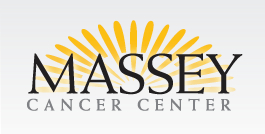Reduced Intensity Total Body Irradiation + Thymoglobulin Followed by Allogeneic PBSCT
| Status: | Completed |
|---|---|
| Conditions: | Cancer, Blood Cancer, Lymphoma, Hematology, Leukemia |
| Therapuetic Areas: | Hematology, Oncology |
| Healthy: | No |
| Age Range: | 40 - 70 |
| Updated: | 11/11/2018 |
| Start Date: | July 21, 2008 |
| End Date: | June 28, 2017 |
Reduced Intensity Myeloablative Total Body Irradiation and Thymoglobulin Followed by Allogeneic Peripheral Blood Stem Cell Transplantation
One of two different doses of thymoglobulin will allow bone marrow engraftment with minimal
Graft-versus-Host Disease and allow adequate immune response to allow the transplanted stem
cells to replace the tumor cells.
Graft-versus-Host Disease and allow adequate immune response to allow the transplanted stem
cells to replace the tumor cells.
This randomized phase II trial studies how well giving low dose total-body irradiation (TBI)
with anti-thymocyte globulin followed by donor peripheral blood stem cell transplant (PBSCT)
works in treating patients with hematologic malignancies. Giving reduced intensity total-body
irradiation and anti-thymocyte globulin before a donor peripheral blood stem cell transplant
helps stop the growth of cancer cells. It may also stop the patient's immune system from
rejecting the donor's stem cells. When the healthy stem cells from a donor are infused into
the patient they may help the patient's bone marrow make stem cells, red blood cells, white
blood cells, and platelets. Sometimes the transplanted cells from a donor can make an immune
response against the body's normal cells. Giving total-body irradiation together with
antithymocyte globulin before transplant may stop this from happening.
with anti-thymocyte globulin followed by donor peripheral blood stem cell transplant (PBSCT)
works in treating patients with hematologic malignancies. Giving reduced intensity total-body
irradiation and anti-thymocyte globulin before a donor peripheral blood stem cell transplant
helps stop the growth of cancer cells. It may also stop the patient's immune system from
rejecting the donor's stem cells. When the healthy stem cells from a donor are infused into
the patient they may help the patient's bone marrow make stem cells, red blood cells, white
blood cells, and platelets. Sometimes the transplanted cells from a donor can make an immune
response against the body's normal cells. Giving total-body irradiation together with
antithymocyte globulin before transplant may stop this from happening.
Inclusion Criteria:
- Patients with hematological malignancies for which allogeneic stem cell
transplantation indicated including non-Hodgkin lymphoma (NHL), multiple myeloma (MM),
acute myeloid leukemia (AML), Hodgkin lymphoma (HD), chronic lymphocytic leukemia
(CLL), chronic myelogenous leukemia (CML), and myelodysplastic syndrome (MDS)
- Patients with HLA compatible related or unrelated stem cell donor, willing and able to
serve as an allogenic HSC donor. Unrelated donors have to be matched at HLA-A, B, C
and DRB1 loci. A single locus mismatch will be tolerated in the event a more closely
matched donor is not available.
- Patients age >/=40 to
- Patients between 18 and 40 years of age will be eligible only if they have
co-morbidities precluding conventional allogeneic transplantation with full intensity
myeloablative conditioning
- Adequate cardiac, pulmonary, renal and hepatic function for transplant
- Negative serology for HIV
- Negative serum pregnancy test
- Patients who have received therapeutic radiation to a localized field will be
eligible, provided critical structure tolerance doses have not been exceeded
- Patients who have had prior myeloablative autologous transplant will be eligible
Exclusion Criteria:
- Evidence of uncontrolled viral, fungal, bacterial infection
- Evidence of active meningeal or CNS disease
- Prior therapy with rabbit ATG, prior treatment with equine ATG is allowed if more than
3 months ago
- Breast feeding mothers are excluded
We found this trial at
1
site
401 College Street
Richmond, Virginia 23298
Richmond, Virginia 23298
(804) 828-0450

Virginia Commonwealth University Massey Cancer Center Founded in 1974, VCU Massey Cancer Center is a...
Click here to add this to my saved trials